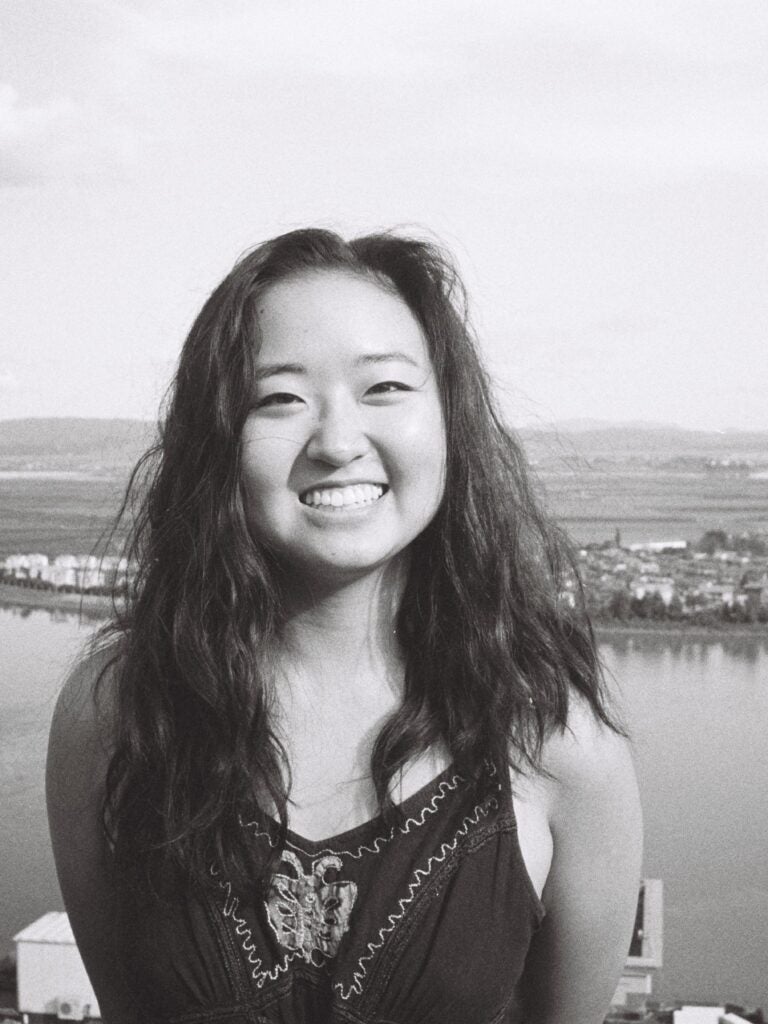2025-2026 CEMA Fellows
Eneos Çarka
Eneos Çarka is a filmmaker, media artist, and researcher. His films have screened at numerous festivals, galleries, and cultural events such as IDFA, HotDocs, FIPADOC where he received Tënk Award, Los Angeles Filmforum, Venice Architecture Biennale and more. He received the FIPRESCI Award in 2023 for his MFA film “The Silence of The Banana Trees” and served as a Jury Member in the IDFA Competition for Youth Documentary in 2022. His first feature documentary “Another Day” debuted at IDFA Luminous section in 2023 where it received a Best First Feature Nomination and won the main award at DokuFest. He is an alumnus of the DocNomads MFA program in Creative Documentary and is currently pursuing artistic research at the University of Southern California.
Beyond The Blue Mountains Is The Sea documents the Albanian Tosk people’s deep connection to the Vjosa River, threatened by corporate and state-driven exploitation. This meditative docufiction explores their traditions and rituals as acts of resilience, highlighting struggles that resonate with global Indigenous cultures against extractivist economies and preserving cultural memory amid ecological pressures.
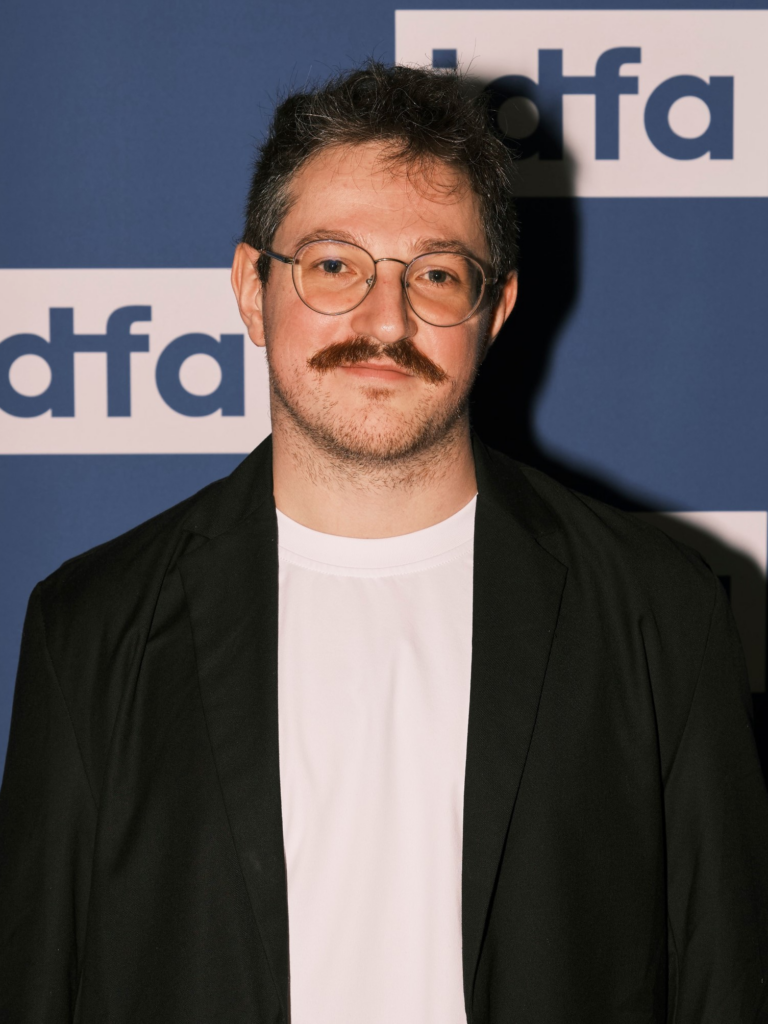
Chantal Eyong
Chantal Eyong is an interdisciplinary artist and researcher based in Los Angeles, CA. Her work explores memory, erasure, movement, and new materialism in relation to African diasporas and emerging technologies. Working across film, text, installation, and digital platforms, she engages oral histories, speculative media, and game culture to examine how communities preserve and transform narratives in digital and liminal spaces.
Her work has been featured on PBS, screened at international festivals, and recognized by institutions such as ScreenCraft, the Atlanta Film Festival, and the Mid-Atlantic Emmy Awards, where she was nominated for co-producing the documentary Thailand Untapped. She is a recipient of the USC Gerald A. Lawson Scholarship for PlayStation Career Pathways, and has exhibited and presented work at venues including CultureHub Los Angeles, the University of the Arts London, and the More-than-Human Symposium at the University of Oxford. Chantal holds an MFA in Screenwriting from UC Riverside and is a Ph.D. candidate in Media Arts + Practice at USC.
Beside Ephemera is an experimental work that explores the porous relationship between the body and digital space through Black cultural production and worldmaking. Blending personal narrative, interviews, internet archives, and remix poetry, the project traces affective encounters across virtual platforms including Animal Crossing, The Sims, and LoudCrowd—spanning pandemic isolation, play, and refusal.
The project considers the knottiness of memory and connection that emerge between worlds. How do our bodies mediate these digital encounters? What do they do to us, and how might we archive ephemeral connections without flattening their messiness?

Parker Hatley

Vladislava Lodesk
Vlada Lodesk is a PhD student at USC School of Cinematic Arts and a filmmaker with an interest in personal documentaries, essayistic, and experimental film practices. Her current research investigates how creative documentaries engage with absence and the ineffable through formal techniques and how these practices reshape theories of (a)visuality. These ideas are central to her latest short letter-film to her deceased father, whom she never met, in which she traces his presence through her mother’s memories and the artifacts he left behind.
Vlada holds a Master’s degree from Indiana University, where she was a Fulbright Research Fellow. Her practice-led research there focused on accented filmmakers and their use of cinematic techniques to evoke visceral experiences of displacement. As a CEMA fellow, Vlada will continue to explore notions of home and dislocation. Her CEMA project is a diaristic road film that follows two simultaneous east-to-west journeys set in contrasting geographies: her own move from Indiana to California and her family’s relocation from Siberia to the Caucasus. Struggling to reconcile emotional and cultural distances, Vlada turns to cinema as a space where a connection between places, generations, and fragmented identities becomes possible.

Brodie Quinn
Brodie Quinn is a PhD candidate in Anthropology at USC. His research focuses on contemporary religious and political life in the United States, with a particular interest in Christian communities and media cultures. A visual anthropologist and ethnographic filmmaker, Brodie’s work blends participant observation with audiovisual storytelling to explore how belief, identity, and citizenship are experienced and expressed in everyday life.
His current project, God’s Country: Faith and Nationalism in Texas, investigates the vibrant intersections of Christian faith and civic engagement in the Dallas–Fort Worth area—one of the country’s most active centers of religious and political thought. Building on previous fieldwork in Idaho’s “American Redoubt” and at national gatherings such as the ReAwaken America tour and the California GOP convention, Brodie is following how churches, podcasts, rallies, and media outlets contribute to a shared moral and spiritual vision for the nation.
Supported by the CEMA fellowship, he will produce a multimodal film that weaves together interviews, sermons, soundscapes, and digital media to create an immersive portrait of this world. The project aims to understand how religious narratives, values, and media forms are shaping the future of American life across communities and generations.
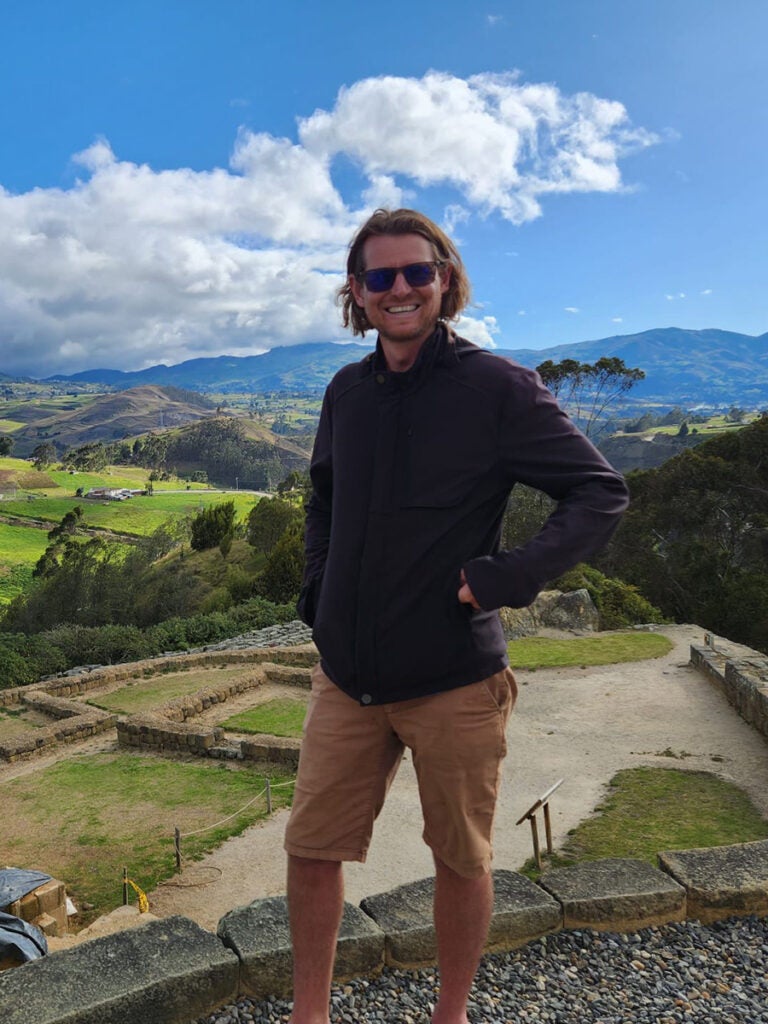
David de Rozas
David de Rozas is a filmmaker, visual artist, and PhD student in the Media Arts and Practice program at the USC School of Cinematic Arts. His work investigates the politics of memory as an embodied and affective method to conjure forms of collective resistance and restitution against historical cultural amnesia and violence. During CEMA’s fellowship, he will work on The Land of Coming Events, a 16mm feature film that critically observes, documents, and interrogates the impact of Downtown Los Angeles’s current urban renewal on its communities and environments. Weaving together everyday life’s ordinary and the extraordinary, the governed and the ungovernable, this film is a complex meditation on the metropolitan district undergoing a process of re-colonization by developers and the affluent; a haunting urban symphony of the not-fully-present nor totally absent Downtown Los Angeles.
De Rozas’ award-winning films have been screened in festivals and film-curated series worldwide, including NY MoMA, Visions du Réel, FullFrame, Sheffield Doc/Fest, True/False, Kassel DocFest, and the Smithsonian African American Film Festival. David has been a Flaherty Fellow in 2019, a VIA Art Fund Production grantee in 2020, an artist-in-residence at Headlands Center for the Arts in 2021, and USC Annenberg Fellow since 2023.
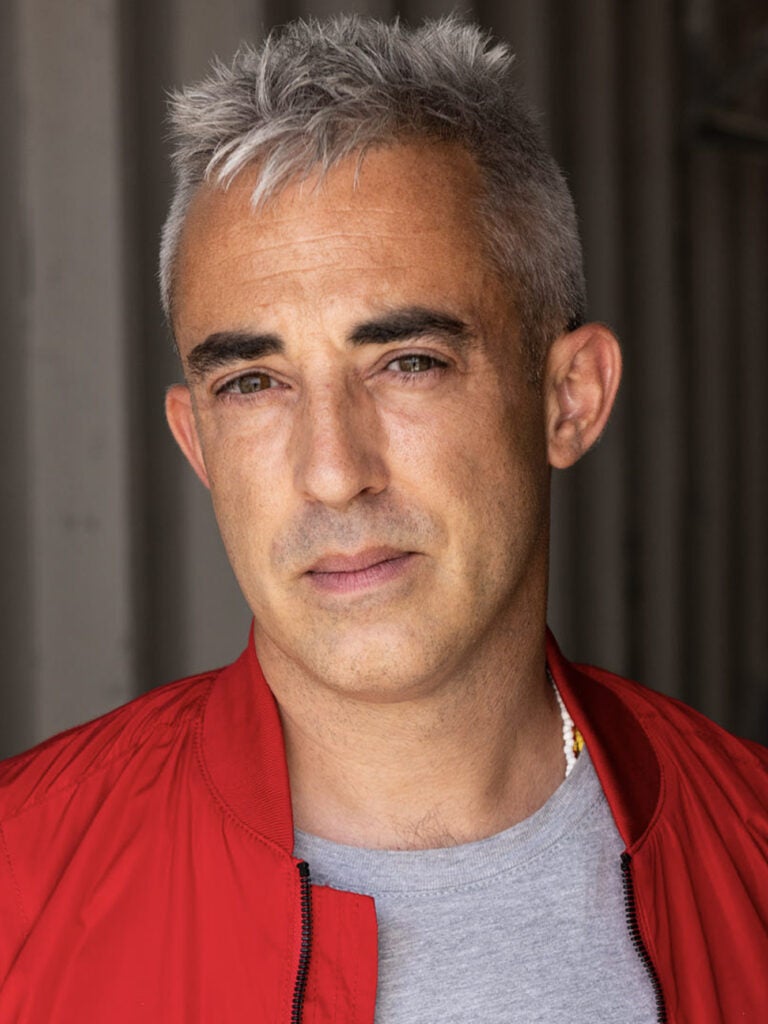
Ellie Schmidt
I am a visual artist and filmmaker from Denver, CO. My research explores social, ecological and physical “sites of exchange” of Pacific coastlines through film, swimming, boating and love stories. I am interested in developing new vocabularies for considering mutual exchanges (hunting, eating, freediving, osmosis) that define contemporary relationships between subsistence cultures and wild places, especially in Southeast Alaska and Southern California. In the context of widespread ecological destruction, how can arts practice lead us towards a more enmeshed, reciprocal, loving relationship with the world? Can fiction, myth, or traditions help us to imagine and implement beautiful, blue, post-humanist futures? I use documentary films, poems, creative nonfiction and interactive installations to ask what different types of interfaces— romantic attachment, subsistence, cutting fish— can teach us about these landscapes of love and loss.
Tessa, a collaboration between Ellie Schmidt and her mother Nanci Lee, is an intimate ethnographic film about a woman who died from complications from an illegal abortion in 1966, leaving behind a husband and five children. The film cultivates nourishing and difficult conversations about daughterhood, reproductive health in America, diasporic loss and intergenerational memory.

Grace Simbulan
Grace Pimentel Simbulan is a documentary filmmaker based in Los Angeles and Manila, and a PhD candidate in anthropology. Her work explores memory, living archives, and the aftermath of state violence, blending ethnography with film to tell stories that are both intimate and political.
Her films have been recognized by the Berlinale, the Asian Film Academy, Australian International Documentary Conference (AIDC), and Tokyo Docs, among others. In 2020, she was awarded the Nō Studios Artist Grant for film in Wisconsin. Her debut feature, A is for Agustin (2019), earned a spot in CNN Philippines’ Top 10 Films of 2019 and received multiple nominations and awards from international film festivals. Grace was selected as a 2025 (Egg)celerator Lab grantee by Chicken & Egg Films.
Letters from the Revolution explores the personal and historically significant story of Al and Nymia, two individuals who dedicated their youth to the underground movement against dictatorship in the Philippines. Spanning from the declaration of Martial Law in 1972 to the post- dictatorship years of the 1990s, this documentary reconstructs their story through a secret archive of letters, personal memoirs, and historical documents that remained hidden for decades. The film is both a personal journey and a historical excavation, delving into the sacrifices made by those who fought in the longest-running communist insurgency in Asia and how these sacrifices reverberated across generations.
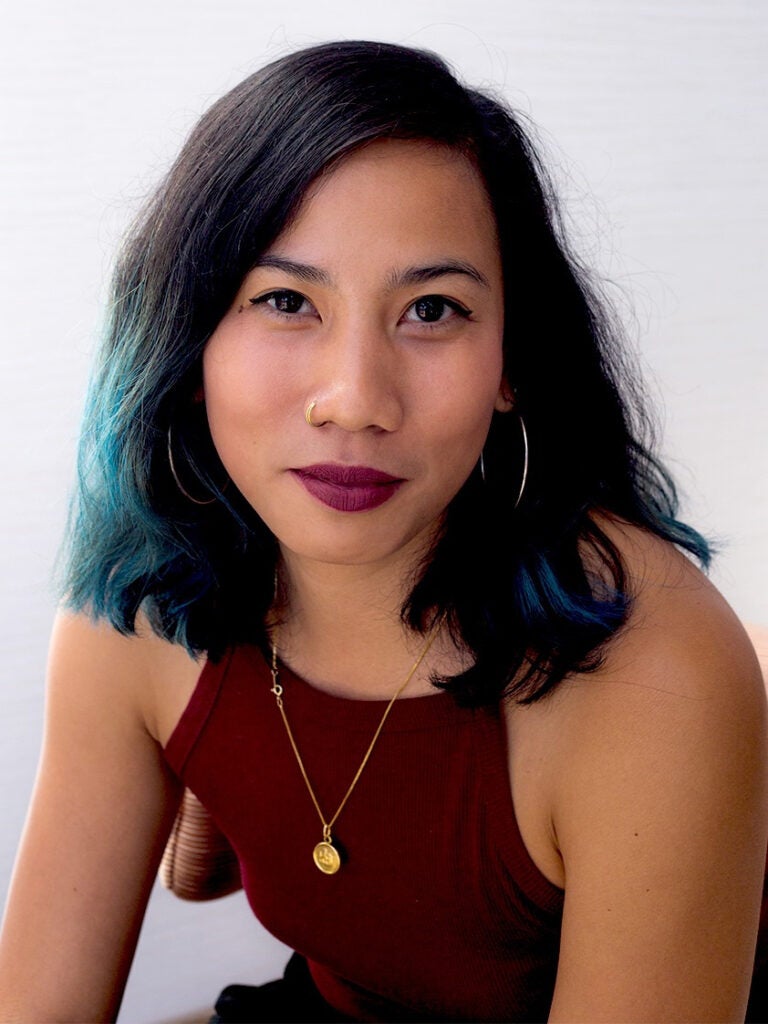
Shaoyu Tang
Shaoyu Tang is a 3rd year PhD student in Anthropology at the University of Southern California. His research projects focus on how people live with cultural politics in their everyday lives. His dissertation project studies the emergent stand-up comedians from Northeast China, from whom he learns the art of being “happy citizens” in contemporary China. Based on his ethnographic work, Shaoyu has developed (in CEMA 2024-2025) an audio-video remix project on a group of fans of Ma Dashuai, a television drama produced in Northeast China twenty years ago. In this project, he uses “remix” as both visual practice and conceptual scaffold to explore how people from Northeast China (Dongbei) interact with various kinds of media to come to terms with their post industrial past, reckon with cultural authenticity, and imagine a prosperous future.
In the following year, Shaoyu will be working on a collaborative media art project that reflects on the feelings of shame and guilt of anthropologists in their fields. In this project, Shaoyu will collaborate with Xiaofan Sun, a PhD Candidate at the University of Hong Kong whose ethnographic study examines the hallucinatory experiences during psychedelic-assisted therapy, and explore how ethnographers’ ethical concerns and aesthetic experiences mutually influence each other and, in turn, question boundaries between ethnographers and research subjects, the medical and the spiritual, and reality and fantasy. Rethinking the problematic concept of “empathy,” the two anthropologists work together in this project to explore how sharing affect and vulnerability through artistic engagement can help imagine ways of co-living and care.
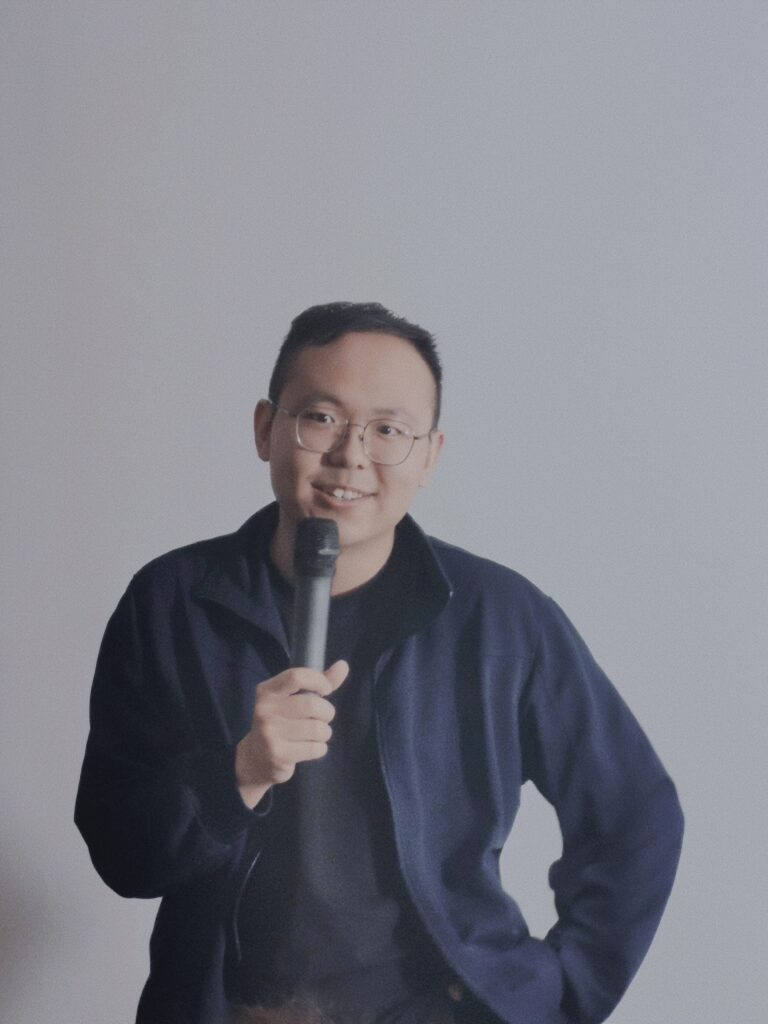
Antigoni Tsagkaropoulou
Antigoni (b.1993) is an artist, filmmaker, and performer from Greece, constructing speculative worlds that pulse between reality and fiction, centering a chorus of queer, femme, and non-human voices existing in the margins of techno-capitalist regimes. They often conduct archival research into sidelined histories or draw inspiration from the potent stories of those living intimately around them—stories they translate into poetic, hybrid films that rupture normative perceptions of time, space, and being. Through a deliberate fusion of live-action performance and immersive CGI environments, Antigoni destabilizes boundaries between fantasy and materiality, creating spaces of sensory disruption and transformative potential. Other times, they create the radical spaces for these kinds of stories to be told and flourish, utilizing speculative storytelling, and participatory sculptural installations designed to foster emergent forms of collective imagination. Collaboration—with artists, friends, lovers, and machines—is fundamental to their practice, grounding their work in relational and intimate methodologies that propose visionary reconfigurations of social, political, ecological, and economic systems. During the CEMA fellowship they will work on an interdisciplinary project about reimagining human/robot/planetary interaction through soft intelligences, affective vulnerabilities, and eco-queer relationalities.
Antigoni is currently a Ph.D candidate in Media Arts and Practice at USC School of Cinematic Arts. They hold an MFA in Media Arts from UCLA School of the Arts and Architecture under a Fulbright Scholarship and a BFA in Sculpture from the Athens School of Fine Arts in Greece. Their work has been exhibited at prestigious venues such as the Arnolfini Center for Contemporary Arts in Bristol, Honor Fraser Gallery, REDCAT Roy and Edna Disney CalArts Theater, UCR Arts x LACMA as part of PST Art, among others.
During the CEMA fellowship Antigoni will work on an interdisciplinary project about reimagining human/robot/planetary interaction through soft intelligences, affective vulnerabilities, and eco-queer relationalities. It is a film installation featuring performances with a robot dog and experimental interviews with roboticists who are using these technologies in subversive ways. The film will be shot in 16mm as an attempt to soften the rigidity, cleanness, and accelerationist language often associated with these technologies.

Sichong Xie
Sichong Xie is currently a PhD student in the Media Arts and Practice program with a graduate certificate in Performance Studies at the University of Southern California. Her practice combines movement and material in body-based sculptural forms. By placing traditional sculptural forms within new sites, materials, and social constructs, Xie investigates these forms and movements within global communities to re-consider and re-envision shared spaces and performative practices. She raises questions about identity, politics, cross-culturalism, and the surreal characteristics of her body in the ever-changing environment. Xie received her MFA from the California Institute of the Arts. She is the recipient of the 2022 MAP Fund Award and the 2021 Artadia Los Angeles Award. Her most recent project, Trampoline House: Memory Drawing Series, transforms a playground into a stage of temporal disintegration. Drawing from children’s games and the rawness of construction site materials, this durational performance collapses the boundaries between play and labor. A trampoline becomes the platform for a living drawing, where a large chalk piece is layered over original architectural blueprints from her grandfather’s in the 1960s. As the durational performance slowly dissolves the chalk drawing, the ephemeral nature of memory takes form in every movement. Xie was a fellowship artist at MacDowell, Yaddo, Hauser & Wirth Somerset, The Studios at MASS MoCA, and Skowhegan School of Painting & Sculpture. Recent exhibitions include the Armory Center for the Arts, USC Pacific Asia Museum, Wende Museum, OCAT Art Museum, Chashama Gallery, and Zentrum für Kunst und Urbanistik.
Nomadic Scaffolding is a multi-channel video installation and durational performance project exploring the complexities of borderlands through site-specific footage, animation, and installation. Filmed in both landscapes in Southern California and Inner Mongolia, the project creates a transcontinental dialogue on mobility, identity, and cultural memory. In Southern California, bamboo scaffolding with sailcloth symbolizes (im)migration, paired with charcoal stop-motion animation and grounded in references to John Steinbeck’s insights on migrant labor and social justice. In Inner Mongolia, the yurt serves as both a physical structure and a metaphor for nomadic dwelling, exploring the impact of modern borders. Through durational performance and dual-channel video, the installation juxtaposes the borderlands, highlighting both parallels and divergences in how geopolitical divisions shape cultural landscapes.

Faye Zhang
Faye Yan Zhang is an anthropologist, animator, and PhD student in Media Arts and Practice at the University of Southern California. She holds an M.A. in Visual Anthropology from the University of Manchester as a Fulbright U.S. Scholar, an M.A. in Chinese Law and Society from Peking University as a Yenching Scholar, and a B.A. from Harvard University. Her work combines film, animation, and spatial analysis to examine labor, memory, and cultural narratives across China and the United States.
She is currently developing two creative projects. Red River is a mixed-media documentary about a delivery company in Jianshui, Yunnan, following workers who transport goods by three-wheeled motorbike between a rural town and the provincial capital. Drawing from Chinese independent documentary traditions, the film explores the human labor sustaining China’s e-commerce economy.
Her second project, Memoirs of a Barefoot Doctor, is an animated anthology based on her grandmother’s handwritten memoir. It traces women’s lives during China’s Communist reform era, including the decline of footbinding, the development of rural medicine, and the effects of political upheaval. The work blends archival text, personal narrative, and hand-drawn animation to explore generational memory.
She is also conducting a spatial media study on American public opinion about China, combining sentiment analysis of geotagged social media data with survey validation to examine how regional and cultural factors shape perceptions of China across the United States.
